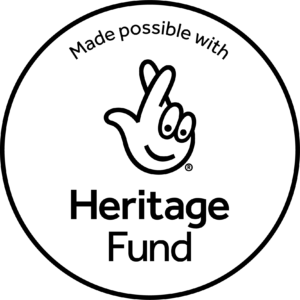Do you have a connection to the uprisings that happened across the UK in 1981?
We want to hear from Black people who have a connection to the 1981 uprisings in Brixton, Handsworth, Toxteth, St Pauls and Moss Side.
To mark the 40th anniversary of the Brixton, Toxteth, Moss Side, Handsworth and St Pauls uprisings, we’re archiving and amplifying the stories of those who were there, in collaboration with 81 Acts and The Ubele Initiative. The stories will form a special version of A Mile in My Shoes, our award-winning art project where visitors take a walk in the shoes of a stranger (literally) while listening to their story through headphones. This new version will be shared with the public in Brixton in 2022.
On this page you can find some more information about the project, and what’s involved in being part of it. You can also access this information in the format of:
What is A Mile in My Shoes?
Empathy Museum’s ongoing project, A Mile in My Shoes, is a re-imagined shoe shop where visitors are invited to walk a mile in someone else’s shoes (literally) while listening to a story told by that person. So far we have a collection of 500 stories and have welcomed over 100,000 visitors. The project has been presented at Totally Thames Festival, Perth International Festival of Art, London International Festival of Theatre, the Houses of Parliament, and more than 40 other places.
What’s special about this new version?
For this version of A Mile in My Shoes, we’re excited to be working with 81 Acts, The Ubele Initiative, and within our local community to mark the 40th anniversary of the 1981 uprisings in Brixton, Handsworth, Toxteth, St Pauls and Moss Side. The stories collected will form an exhibition in Brixton, and will archive and amplify the experiences of those who were there at the time. We hope that inviting others to walk in these shoes will be a powerful experience that inspires empathy with Black British history.
Here’s a selection of stories shared for A Mile in My Shoes, to give you a feel for what they’re like:
You slip on someone else’s shoes and take them for a stroll. The owner’s voice plays out in your ear: a recording talking through their life and experiences. It’s an experience defined by their absence, and yet you feel a palpable connection. It’s as if you’re a guest in their shoes – honour-bound to listen carefully to their story. In really listening, you imagine what it's like to be them.
— Matt Trueman, What’s On Stage
WHAT WERE THE 1981 UPRISINGS?
In April 1981 Black communities in Brixton rose up in a bloody confrontation with the Met Police, against a backdrop of racism, severe economic recession and high unemployment. A year before, Bristol had seen similar uprisings and the summer of ‘81 saw further serious uprisings in Liverpool, Birmingham, Leeds and Manchester. It was a critical moment in the movement for social justice in Britain, leading to landmark recommendations for police reform and local regeneration policies.
Who do we want to hear from?
We are looking for people who identify as Black or Black-British who have a connection to the 1981 uprisings, and who are happy to be recording talking about their experience. The stories need not be dramatic. We want to share stories that resonate, and offer original perspectives from Black communities across the UK.
We particularly encourage people who identify as women, non-binary and/or as part of the LGBTQ+ community, to take part in this project. We are also looking for diversity in age and shoe size!
What DOES BEING A STORYTELLER INVOLVE?
Each storyteller meets with one of our highly experienced audio producers to explore their story through a gentle process of conversation.
We ask each storyteller to donate a pair of shoes when they share their story with one of our audio producers. The audio story and shoes form part of a growing cultural archive and touring exhibition – thousands of visitors will literally walk in their shoes. As well as creating an outstanding artwork, testimonies from storytellers attest to the benefits of the process of telling their story.
We offer an optional honorarium of £50 to cover expenses for each storyteller. (Empathy Museum is an arts charity that doesn’t make a profit, and all our exhibitions are free to attend.)
When I told my story to the Empathy Museum, I felt that I was accepted for who I am. I felt that someone was interested in hearing my whole story, not just the bits they like. I have participated in similar initiatives, but with Empathy Museum it was different, they wanted me, not just the parts that suit them. I was able to talk freely without fear of judgement. I was not just one character, I was a refugee, a victim, a hero, a husband, a son, a lover, a dentist, an activist .... I was Yazan. I can confidently say that my experience with Empathy Museum has boosted my confidence in myself in this new country and community.
— Yazan, A Mile in My Shoes participant
If you would like to take part in this project…
(or put us in touch with someone you know!)
Email olivia@empathymuseum.com
Text Olivia on 07984 560 377
This project is supported by a grant from The National Lottery Heritage Fund. Using money raised by the National Lottery, to inspire, lead and resource the UK’s heritage to create positive and lasting change for people and communities, now and in the future.

To see what else we get up to, find us on Twitter, Facebook and Instagram at @empathymuseum, @81acts, and @HeritageFundUK, or check #EmpathyMuseum, #NationalLotteryHeritageFund, or #81acts.
